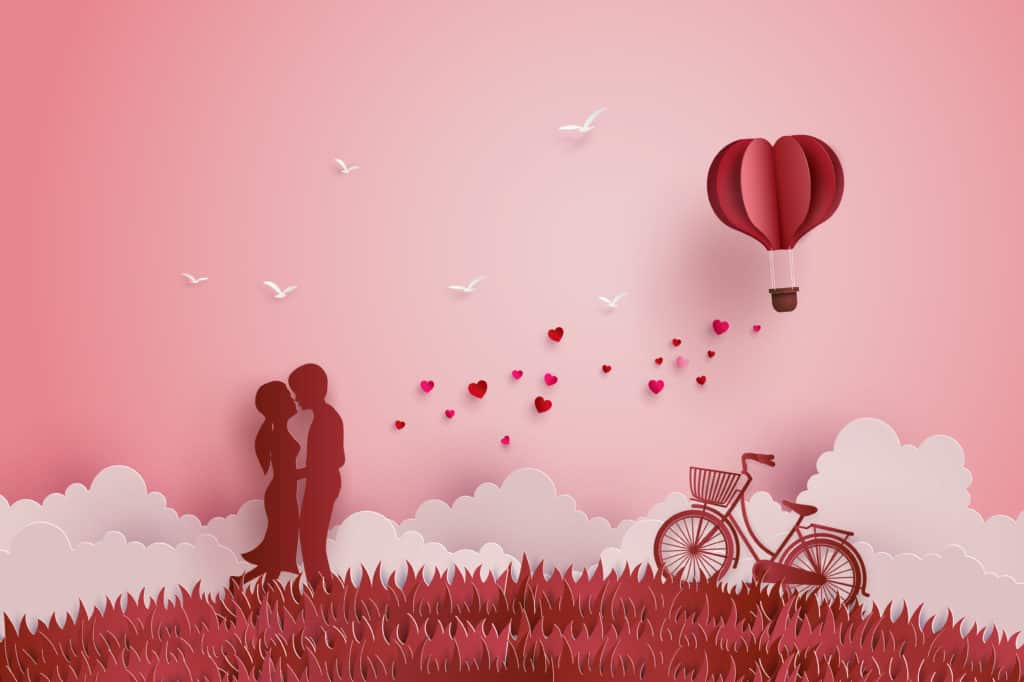
Barney, Linguistics and Love
Part 1
I love you! You love me!
We’re a happy family, with a great big hug and a kiss from me to you,
won’t you say you love me too?
Jip, you read correctly! This month we are focusing on Love and Wisdoms from Barney the Friendly Dinosaur. February was a chaotic month at the practice, with several personal difficulties and traumas, community tragedies and our children’s school and extramural activities reaching calamitous proportions. It felt as if February was passing in a blur.
During this hectic time, I kept thinking about what to say about love? Thanks to one of our kids leaving a Barney DVD on repeat his jingle (I love you …) was stuck in my head for hours (severe case of earworm-elitis), but it also made me think.
We use the word love almost without thinking. We say: “I love you…, I love cheese…, I love it when….” We also “teach” it as a concept to our children and other significant others in our lives. “Love is…, “I know you love me if/when…., AND we use it to get angry, reject and sometimes even destroy others should they not fulfil our love needs or reach certain ideals we have about love “I hate you…, You betrayed my love…, If you really love me….”
Some linguistic research suggest that the word Love is one of the oldest words we know. These types of words are known as building block words, reflecting key elements in developing societies across humanity.
It is one of the oldest English words. It came about before the year 900. Even before there was social media, Netflix, or bouquets of roses … people wanted some way to express their attachment and affection toward others.
Love usually goes with the word “I”. The word I is the ultimate personal pronoun, referring to oneself. This word also dates all the way back to before the year 900. This was probably because humans needed ways to refer to themselves (as opposed to their mother, brother, husband, child). It seems as if self-identity was and always will be important. I also refers to your ego. Who wouldn’t want to take credit for hunting that huge mammoth that fed the entire community?
This then means that the word We is also important. “We’re a happy family…” ala Barney. The word We is the nominative plural of I, indicating possession, so of course it was created around the same time as the previous word. “We” is thus used to denote oneself and another, or multiple others. Because if you have a way to reference yourself (I), then why not find a way to describe the whole gang, as well.
And there you have it. It seems love has been in the air since the beginning of time. It’s one of the oldest English words, and probably one of the most misused, misinterpreted and emotionally laden words we use in any language. Love seems to permeate our psycho-emotive and psycho-social development and functioning; it shapes what and how we think, how we develop as humans, how we treat others, it shapes our thoughts, words and actions. A truly holistic word if you ask me.
Therefore, Gerda and I decided to dedicate February, March and April to this key concept called Love; how it affects the self, our partners, family, parent-child relationships, our gratitude and how it’s influenced by trauma.


According to Leo Buscaglia we grow in love, this growth happens as we interact with the world around us. The interaction then influences our definition of love as it changes and enlarges by this growth. But there are certain common elements which can be examined.
Love is a learned, emotional reaction; a response to a learned group of stimuli and behaviours. It is affected by the interaction of the learner with his environment, the person’s learning ability and the type and strength of the reinforcers present. Love is a dynamic interaction, lived every second of our lives, all of our lives. Therefore, it is everywhere at every time.
We grow in love. The more we learn, the more our opportunities to change our behavioural responses and thus expand our ability to love. We are either constantly growing in love, or dying. We must live love, in action. We will learn love only with fresh insight, with each new bit of knowledge.
Love is not a thing. It’s not a commodity that can be bartered for or bought or sold, nor can it be forced upon or from someone. It can only voluntarily be given away. If an individual chooses to share it with all men alike, he’s free to do so. If he chooses to reserve it for a unique few, he may do this, also. His love is his to give. Love is a process of ‘building upon’ what is already present. Love is never complete in any person. Love is trusting. Love is patient. Love is not afraid to feel and cries for expression. Love is an act of faith. Love lives in the moment… Love is Now.
I Do Not Love You Except Because
I Love You
Pablo Neruda
I do not love you except because I love you;
I go from loving to not loving you,
From waiting to not waiting for you
My heart moves from cold to fire
Maybe January light will consume
My heart with its cruel
Ray, stealing my key to true calm.
I love you only because it’s you the one I love;
I hate you deeply, and hating you
Bend to you, and the measure of my changing love for you
Is that I do not see you but love you blindly.
In this part of the story I am the one who
Dies, the only one, and I will die of love because I love you,
Because I love you, Love, in fire and blood